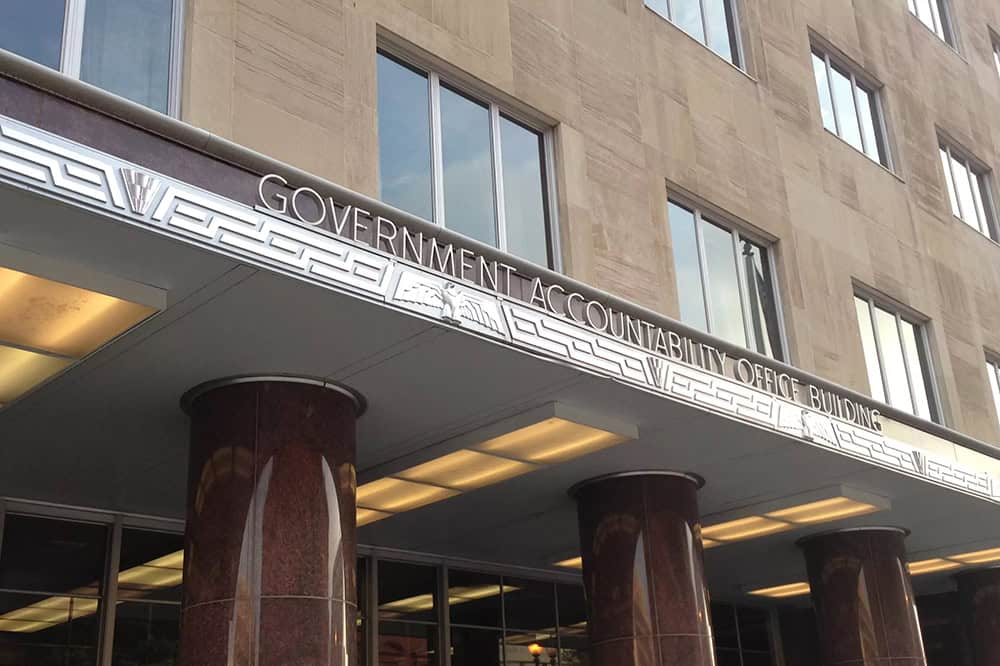U.S. Voters Sound Alarm on Budget Bill That Adds $29 Trillion to National Debt; Deep Concern Across Party Lines About Inflation, Interest Rates
9 in 10 Voters Say Current Market Uncertainty and Economic Turmoil Increases Worries About National Debt
The U.S. Fiscal Confidence Index Drops to 54 in April (100 is Neutral)
U.S. voters hold deep concerns about lawmakers’ pursuit of a budget bill that would add $29 trillion to the national debt over the next decade, and are particularly concerned that added debt will drive higher inflation, interest rates and consumer costs. A new survey from the Peter G. Peterson Foundation also shows that recent market uncertainty and economic turmoil is increasing voter worries about America’s $36 trillion and rising national debt. Against this backdrop, the U.S. Fiscal Confidence Index fell in April five points to 54 (100 is neutral), indicating that voters are calling on lawmakers to improve America’s fiscal standing.
In this new survey, jointly conducted by Democratic firm Global Strategy Group and Republican firm North Star Opinion Research, overwhelming majorities of voters across party lines express concerns about lawmakers adding new debt in legislation this year. The results include:
- 87% of voters, including 88% of Democrats, 90% of Independents and 85% of Republicans are concerned about lawmakers adding trillions to the debt through this year’s budget bill;
- 88% of voters, including 92% of Democrats, 89% of Independents and 84% of Republicans, are concerned that adding $29 trillion to the national debt over the next 10 years will increase inflation, interest rates and consumer borrowing costs; and
- 86% of voters, including 92% of Democrats, 88% of Independents and 80% of Republicans, say that the recent U.S. financial market and economic turmoil increase their concern about America’s growing national debt.
More broadly, according to the April U.S. Fiscal Confidence Index, 76% of voters are urging the president and Congress to spend more time addressing the national debt. Also, 75% of voters agree that addressing the debt needs to be a top-three priority for the president and Congress, including 73% of Democrats and 89% of Republicans.
“With significant market volatility and the United States already on a dangerously unsustainable fiscal path, Americans are sounding the alarm about the risks of adding even more debt,” said Michael A. Peterson, CEO of the Peterson Foundation. “Voters understand that rising debt puts upward pressure on inflation, and makes everything more expensive, from grocery shopping to buying a house or car. When lawmakers return from recess, they should work to pay for their priorities and at the very least ‘do no fiscal harm’ with this year’s budget legislation.”
The Fiscal Confidence Index measures public opinion about the national debt by asking six questions in three key areas:
- CONCERN: Level of concern and views about the direction of the national debt.
- PRIORITY: How high a priority addressing the debt should be for elected leaders.
- EXPECTATIONS: Expectations about whether the debt situation will get better or worse in the next few years.
The survey results from these three areas are weighted equally and averaged to produce the Fiscal Confidence Index value. The Fiscal Confidence Index, like the Consumer Confidence Index, is indexed on a scale of 0 to 200, with a neutral midpoint of 100. A reading above 100 indicates positive sentiment. A reading below 100 indicates negative sentiment.
Fiscal Confidence Index Key Data Points:
- The April 2025 Fiscal Confidence Index value is 54. (The March 2025 value was 59. The February 2024 value was 62.)
- The current Fiscal Confidence Index score for CONCERN about the debt is 48, indicating deep concern about the debt. The score for debt as a PRIORITY that leaders must address is 29, indicating that Americans want elected leaders to make addressing long-term debt a high priority. The score for EXPECTATIONS about progress on the debt is 84. The Fiscal Confidence Index is the average of these three sub-category scores.
The Peter G. Peterson Foundation commissioned this poll by Democratic firm Global Strategy Group and Republican firm North Star Opinion Research to survey public opinion on the national debt. The online poll surveyed 1,007 registered voters nationwide between April 14 and 16, 2025. It has a margin of error of +/- 3.1%.
Detailed results can be found online at www.pgpf.org/FiscalConfidenceIndex.
###
ABOUT THE PETER G. PETERSON FOUNDATION
The Peter G. Peterson Foundation is a nonprofit, nonpartisan organization that is dedicated to increasing public awareness of the nature and urgency of key fiscal challenges threatening America's future, and to accelerating action on them. To address these challenges successfully, we work to bring Americans together to find and implement sensible, long-term solutions that transcend age, party lines and ideological divides in order to achieve real results. To learn more, please visit www.pgpf.org.
Further Reading
Growing National Debt Sets Off Alarm Bells for U.S. Business Leaders
Debt rising unsustainably threatens the country’s economic future, and a number of business leaders have signaled their concern.
How Much Can the Administration Really Save by Cutting Down on Improper Payments?
Cutting down on improper payments could increase program efficiency, bolster Americans’ confidence in their government, and safeguard taxpayer dollars.
What Is R Versus G and Why Does It Matter for the National Debt?
The combination of higher debt levels and elevated interest rates have increased the cost of federal borrowing, prompting economists to consider the sustainability of our fiscal trajectory.


